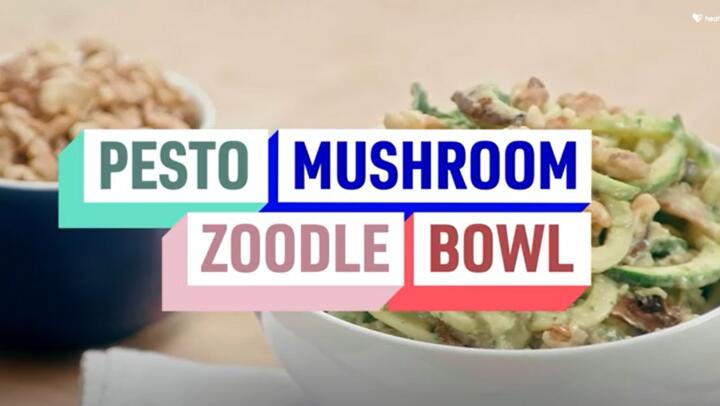The 9 Foods Your Heart Loves Most

Medically Reviewed By William C. Lloyd III, MD, FACS
Written By Healthgrades Editorial Staff on May 29, 2021
Foods high in saturated fat—think butter, cream, and red meat—are a diet disaster when you’re trying to eat heart smart. Instead, choose foods that boost overall health and help keep your heart functioning at its best, such as foods containing flavonoids (think blueberries and cocoa) and foods with healthy fats. A heart-healthy diet should include whole, fresh foods—foods that aren’t processed and packaged. Learn about the specifics that make up a tasty list.
-
 1. Lean ProteinChoosing leaner cuts of meat can help you manage your cholesterol and weight, which promotes heart health. Health experts and dietitians often recommend skinless chicken, fish, and lean cuts of beef (those without the white marbling of fat). Research suggests that lean pork can also be on the list. Aim for three to six ounces of lean protein daily. The actual portion should be approximately the size of a deck of playing cards.
1. Lean ProteinChoosing leaner cuts of meat can help you manage your cholesterol and weight, which promotes heart health. Health experts and dietitians often recommend skinless chicken, fish, and lean cuts of beef (those without the white marbling of fat). Research suggests that lean pork can also be on the list. Aim for three to six ounces of lean protein daily. The actual portion should be approximately the size of a deck of playing cards. -
 2. Fruits and VegetablesFor the best heart health, the American Heart Association (AHA) recommends seven to nine total daily servings of fruits and vegetables. Keep in mind that your number of servings may vary depending on your calorie needs. And serving sizes vary with your fruit and vegetable choices. Eating a variety of fruits and vegetables in a variety of colors ensures that you’ll get a range of nutrients plus plenty of fiber.
2. Fruits and VegetablesFor the best heart health, the American Heart Association (AHA) recommends seven to nine total daily servings of fruits and vegetables. Keep in mind that your number of servings may vary depending on your calorie needs. And serving sizes vary with your fruit and vegetable choices. Eating a variety of fruits and vegetables in a variety of colors ensures that you’ll get a range of nutrients plus plenty of fiber. -
-
 3. Whole GrainsLike fruits and vegetables, whole grains are rich in nutrients as well as dietary fiber. Fiber from whole grains is linked to lower heart disease risk factors—your risk goes down as your fiber consumption goes up. Plan on six servings a day for a 1,600-calorie diet or up to eight servings for a 2,000-calorie diet. A serving can be a slice of whole-grain bread, a ½ cup of brown rice, or one ounce of dry cereal.
3. Whole GrainsLike fruits and vegetables, whole grains are rich in nutrients as well as dietary fiber. Fiber from whole grains is linked to lower heart disease risk factors—your risk goes down as your fiber consumption goes up. Plan on six servings a day for a 1,600-calorie diet or up to eight servings for a 2,000-calorie diet. A serving can be a slice of whole-grain bread, a ½ cup of brown rice, or one ounce of dry cereal. -
 4. Healthy FatsYour body needs some fat to work well. But you want “healthy” fats, such as those found in plant-based oils. This includes monounsaturated canola, olive, peanut and sunflower oils, and polyunsaturated soybean, corn and safflower oils. Remember that you only need a small amount of fat each day, about two to three servings. A serving is only one teaspoon of oil.
4. Healthy FatsYour body needs some fat to work well. But you want “healthy” fats, such as those found in plant-based oils. This includes monounsaturated canola, olive, peanut and sunflower oils, and polyunsaturated soybean, corn and safflower oils. Remember that you only need a small amount of fat each day, about two to three servings. A serving is only one teaspoon of oil. -
 5. FishPeople who live in regions where a diet rich in fatty fish is common, such as Scandinavia, seem to have a lower risk of heart disease. You, too, can gain this benefit, which comes from omega-3 fatty acids. Start by eating fish, such as tuna, salmon, sardines and mackerel on a regular basis—two to three times a week.
5. FishPeople who live in regions where a diet rich in fatty fish is common, such as Scandinavia, seem to have a lower risk of heart disease. You, too, can gain this benefit, which comes from omega-3 fatty acids. Start by eating fish, such as tuna, salmon, sardines and mackerel on a regular basis—two to three times a week. -
 6. NutsResearch shows that people who snack on nuts—as little as a quarter-ounce a day—have lower cholesterol levels. However, it's wise to portion out your nut snacks so you don’t overdo it, because their calories can add up quickly. Aim for about a ¼ cup to benefit from the fiber and healthy fat without consuming too many calories.
6. NutsResearch shows that people who snack on nuts—as little as a quarter-ounce a day—have lower cholesterol levels. However, it's wise to portion out your nut snacks so you don’t overdo it, because their calories can add up quickly. Aim for about a ¼ cup to benefit from the fiber and healthy fat without consuming too many calories. -
-
 7. ChocolateRegularly eating small amounts of dark chocolate may help prevent heart disease and other chronic conditions, such as diabetes. Cocoa, the main ingredient in dark chocolate, is the key to its heart-healthy effects. Although researchers are still learning about chocolate’s health effects, you can enjoy a nibble here and there. Just remember that too much chocolate adds calories and fat, which can lead to weight gain.
7. ChocolateRegularly eating small amounts of dark chocolate may help prevent heart disease and other chronic conditions, such as diabetes. Cocoa, the main ingredient in dark chocolate, is the key to its heart-healthy effects. Although researchers are still learning about chocolate’s health effects, you can enjoy a nibble here and there. Just remember that too much chocolate adds calories and fat, which can lead to weight gain. -
 8. TeaLike chocolate, other specific foods and beverages may also be beneficial because they contain flavonoids. Black tea and green tea, whether hot or cold, are rich with flavonoids, as are darkly colored berries, such as blueberries. Flavonoid-rich foods and beverages may help reduce your heart disease risk. Just be judicious about sweeteners because sugar adds unwanted calories.
8. TeaLike chocolate, other specific foods and beverages may also be beneficial because they contain flavonoids. Black tea and green tea, whether hot or cold, are rich with flavonoids, as are darkly colored berries, such as blueberries. Flavonoid-rich foods and beverages may help reduce your heart disease risk. Just be judicious about sweeteners because sugar adds unwanted calories. -
 9. SpicesNational recommendations are to consume 1,500 mg or less of salt a day to guard against high blood pressure. So, rather than salting foods, experiment with a variety of spices to add flavor. A recent study found that capsaicinoids, which give chili peppers their heat, might be especially good for heart health—so pass the cayenne!
9. SpicesNational recommendations are to consume 1,500 mg or less of salt a day to guard against high blood pressure. So, rather than salting foods, experiment with a variety of spices to add flavor. A recent study found that capsaicinoids, which give chili peppers their heat, might be especially good for heart health—so pass the cayenne! -
 Get started nowIf you need more help with nutrition, ask your primary care provider to recommend a dietitian. You can search for a registered dietitian (RD) on Healthgrades.com. Also, try the American Heart Association’s online
Get started nowIf you need more help with nutrition, ask your primary care provider to recommend a dietitian. You can search for a registered dietitian (RD) on Healthgrades.com. Also, try the American Heart Association’s onlinepersonal calorie number tool Trusted Source American Heart Association Highly respected national organization Go to source . Using personal information, such as your height, weight, activity level, and typical food choices and habits, it determines what your daily caloric intake should be. It also recommends how much fat and salt to include in your diet.
The 9 Foods Your Heart Loves Most





























